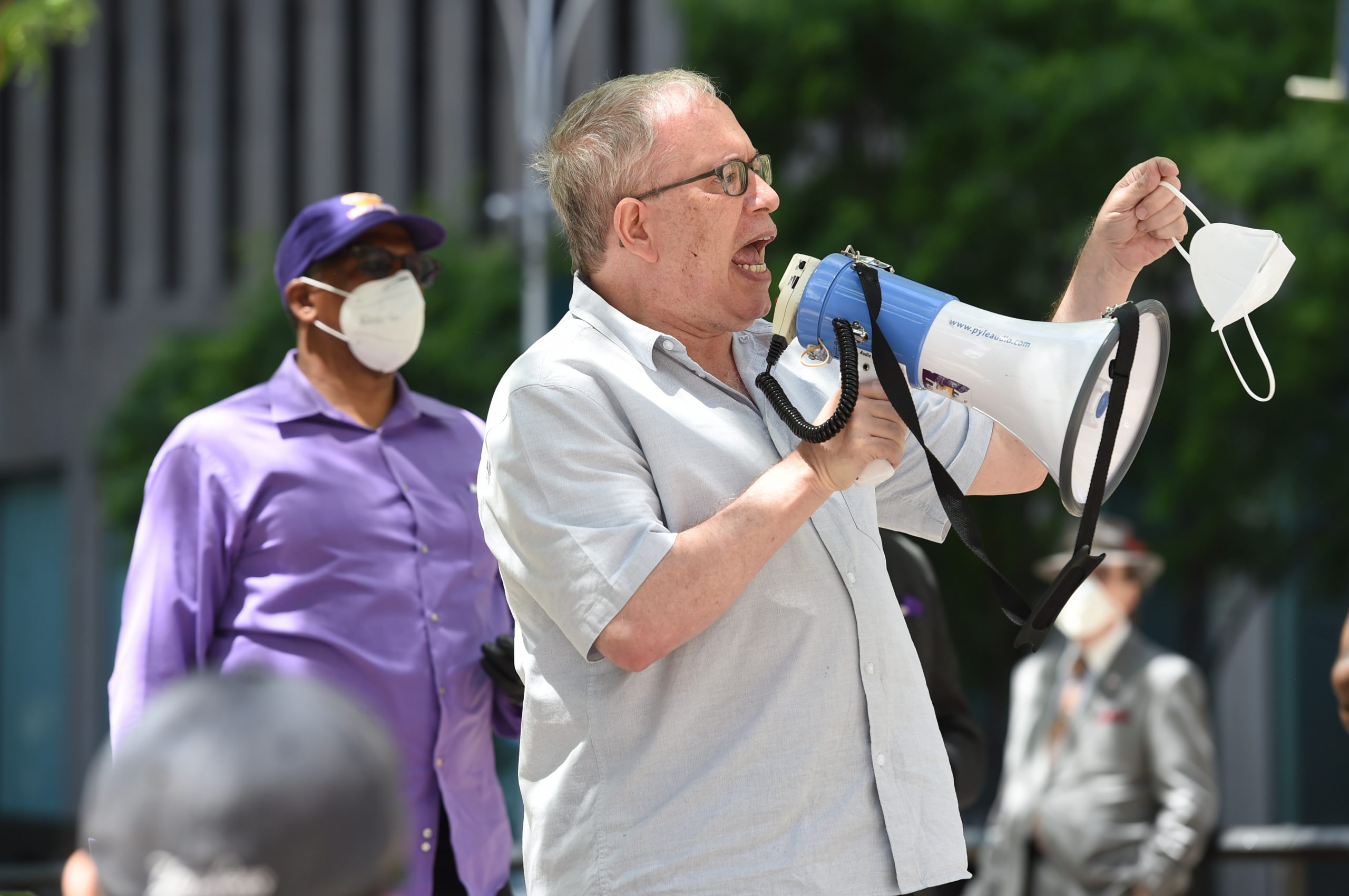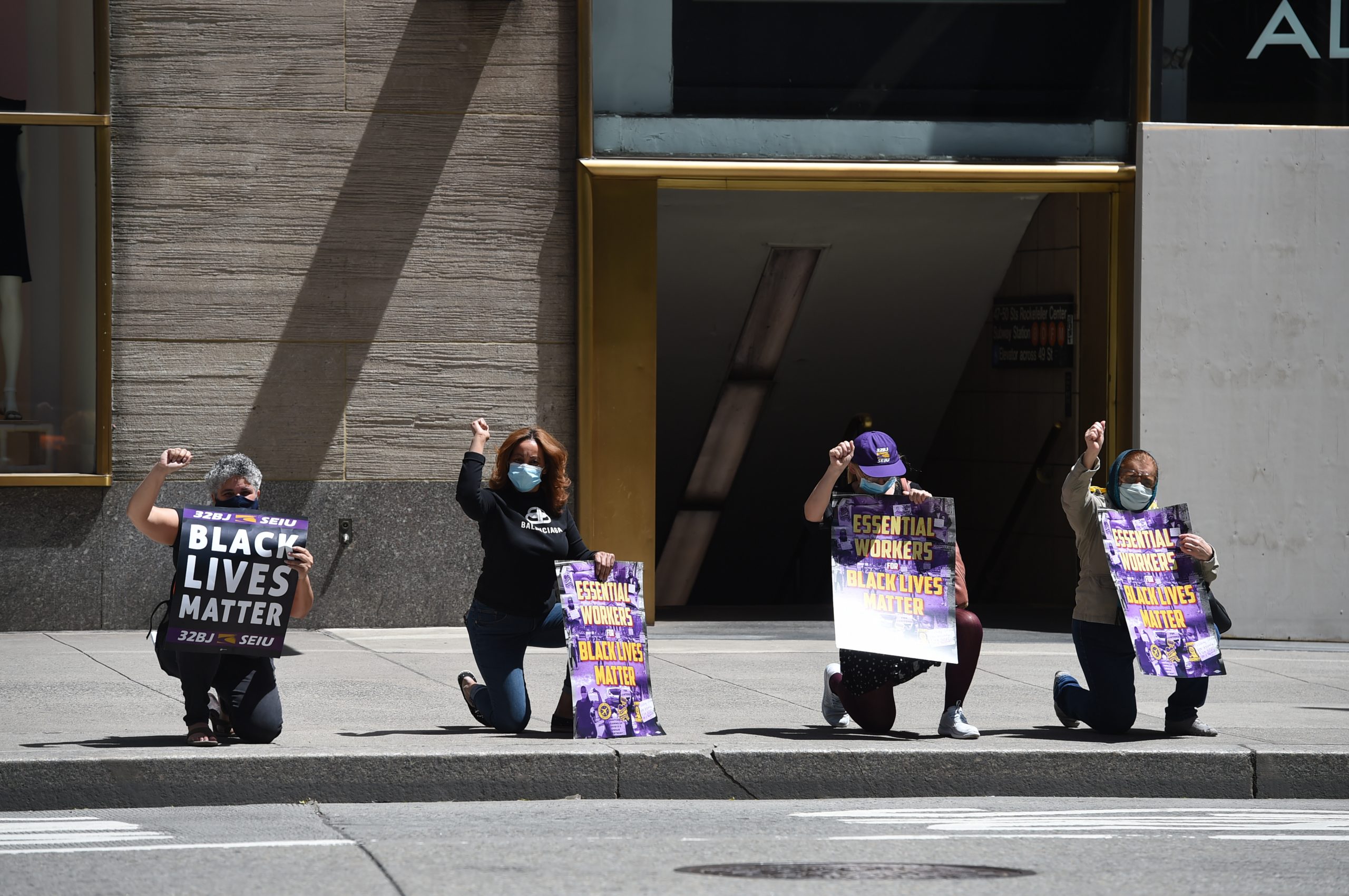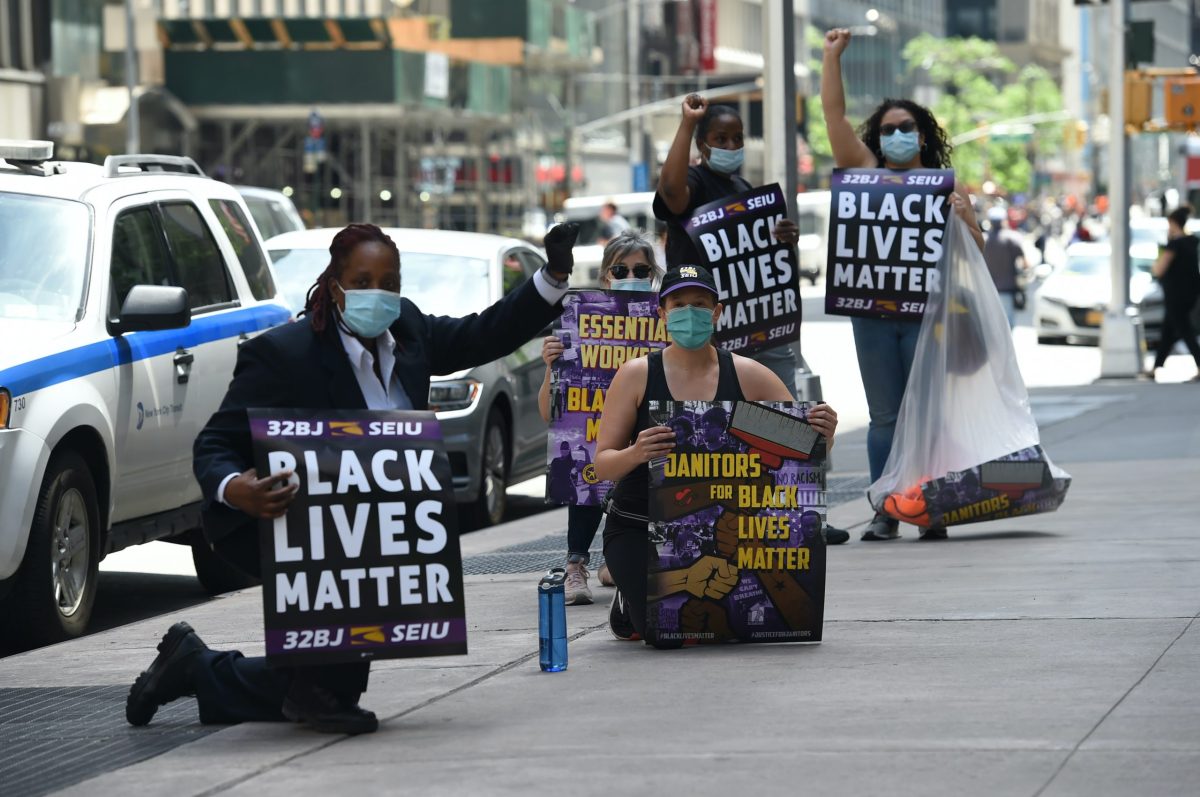Hundreds of building workers along Sixth Avenue in Manhattan from 49th Street to 42nd Street took a knee in solidarity with Black Lives Matter and those protesting against police brutality Tuesday afternoon.
Members of 32BJ SEIU building workers were joined by City Comptroller Scott Stringer who was calling for new leadership going forward to correct injustices. He added his voice to Kyle Bragg, president of the union who said their plight over the years was also difficult and they were recognizing the suffering of workers who have taken risks to go to work during COVID-19 and the protests jamming city streets.
Union members were also commemorating the 30th Anniversary of the Justice for Janitors movement, which saw in its early days violence against unions and those who would organize for fairness in the workplace. The union also formally voted to endorse the core demands of the Black Lives Matter movement.
President Bragg said the history of the union parallels that of the black lives movement when Latino workers first tried to form a union and were beaten with batons by cops.
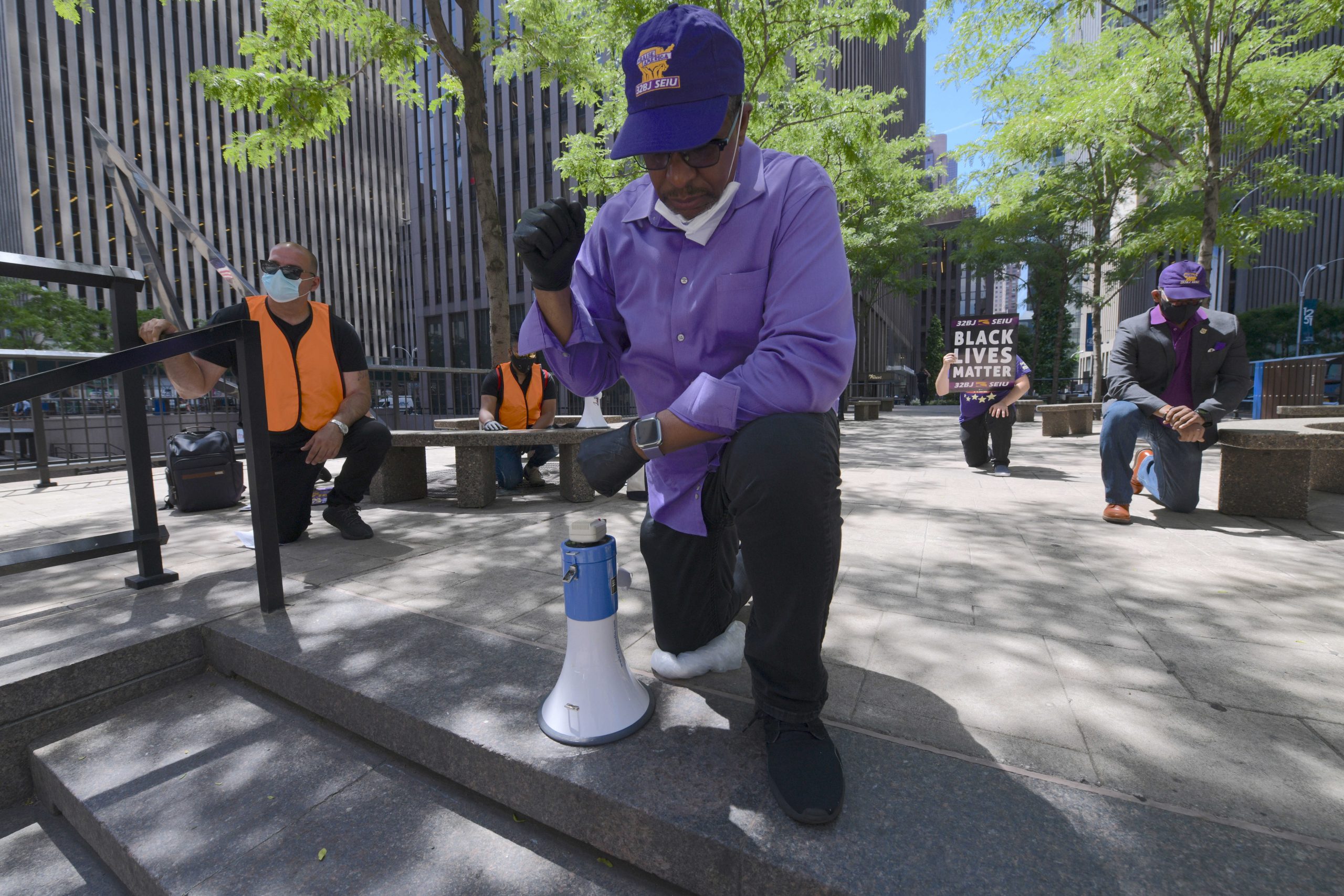
“They were met with severe brutality by law enforcement, beaten with batons and some hospitalized,” he said. “The movement they were part of inspired a nation and it helped janitors, cleaners, security workers, airport workers across the country to come together to demand economic justice for all workers regardless of what you look like, your skin color, the one you love – what mattered was we stood up and demanded equity and justice for all workers,” Bragg said.
The union’s “essential workers providing services to the public” were essential to the city getting through the pandemic.
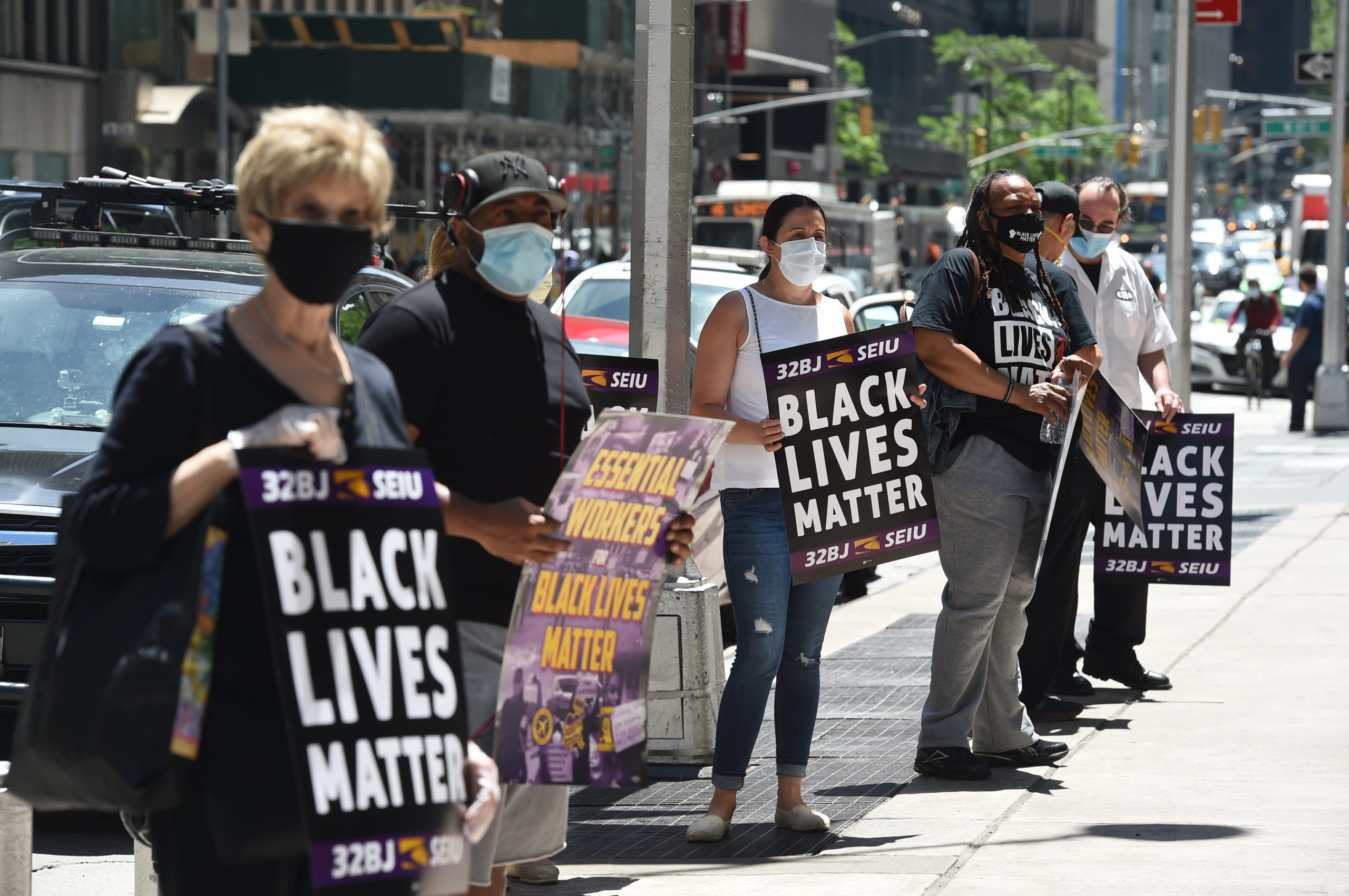
“There is a crisis of economic justice linked to the crisis of racial justice – we cannot win without winning for all,” Bragg said. “Our essential workers too great risk to leave their homes and travel to work, dealing with that anxiety of traveling after curfew, alone, and not knowing what the police might do. this is not an indictment of police, but an indictment of the system.”
Stringer was equally supportive of the workers and the Black Lives Matter movement.
“We are here to tell a story that many people don’t want to talk about,” Stringer said. “And that is to recognize the people on front lines who went into the fight with COVID, didn’t worry for themselves, didn’t have protection for themselves, didn’t know how much longer they had, – they were the essential workers and they are the heroes that made sure lives would be saved. Those are the workers who get on trains and are stopped by the police and say can we have to have a conversation. That has to change.”
He said many of the people who died of COVID-19 were those “people government gave up on.”
“It’s time to bring together a new generation of leadership, that understands what people have built, we can no longer have excuses, we cannot talk a good game at a rally but hen the budget comes, you never see investment in our communities,” Stringer said.
